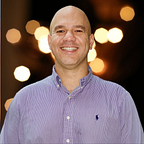Why you should care about Mispronounce of your ‘Foreign-Sounding’ Name
When you have a non-English name, it’s impossible to avoid having someone mispronounce it.
Along with Canada, the USA has a history of forced assimilation, imposing Anglicized names upon foreign, and Indigenous words. Even today, it is still common for newcomers to feel pressure about their accent and on whether to adopt an English name or truncate their name.
Often it is associated with power dynamics issues, which put marginalized people in the position of having to defend an essential part of their identity.
“It’s pronounced TÁ-Ri-Key,” I tell her. I’m sitting across from an HR recruiter in a videoconference. She looks away, shaking her head. As she turns back, she repeats “Taa-rI-ckI,” then tells me how fun must be the carnival in Brazil and how beautiful are the Brazilian forest. As a newcomer, what else should I do? Tolerate her ignorance?
I have a non-Portuguese sounding name, so I passed my entire childhood in Brazil, correcting people to pronounce my name correctly. The mispronounce is an old friend of mine.
I remember going to Starbucks in Brazil. Every time I gave more straightforward sounding names, like Andre, Carlos, Roberto… anything but Taric. It was simple but, at the same time, frustrating. Usually, when people heard my name for the first time, the three common reactions are:
“I’m sorry, how do you say it?”
“That’s an unusual name.”
“I asked for your name and not your nickname. Could you say your name please?”
At some point, I gave up correcting people. I chose to only answer those who make an effort to say my name correctly. Then I moved to Canada. I had to start over correcting people, taking a second option, and adapting my name’s pronunciation to English speakers.
So, I did adjust my name’s pronunciation for English speakers. And I was ok with my decision. I was tired of trying to teach people how to correctly said.
However, a few weeks ago, I experienced two moments that squeezed my heart pretty tight about my name. I met a new coworker, and from the first moment, until today he makes an effort to correctly pronounce my name, and I know that is not easy for him. But he doesn’t give up.
I told him: Man, don’t worry. I really appreciated your genuine effort to correctly say my name. Still, I do understand that it’s hard for English speakers to say it.
His answer: “It’s your name, and the minimum that I can do as a human being is to try my very best to say correctly.” I was moved by him, by his genuine effort and respect. It kept me thinking if I should be more vigilant with my name pronunciation.
Last week, my youngest was sick, so she stayed home with me. She took the opportunity to watch me work; she is that curious. She was quietly by my side during my first meeting, and when it finished, her first comment was:
“Daddy, why do you allow those people to say your name incorrectly?”
That was a punch on my stomach. She has a French name, and sometimes she complains about her new teacher not saying correctly. She gets furious about it; she loves her name, and she’s proud of the story behind it, the why and meaning of her name for my wife and me.
“Daddy, your name is so powerful. Why do you let anyone said wrong?”
And, 🤬! I didn’t have an answer for her. As a father, I couldn’t say that I was just tired of correcting people. And I immediately remember the effort of my new co-work on saying my name correctly. I remember how respected I felt by his genuine attempt.
It was only at this point that I realized how important and devastating it could be for newcomers like me who have non-Americanized names. I know it’s difficult, exhausting, and often frustrating, but our name is part of our identity, our personal life story.
This does not mean that you can teach everyone to speak correctly; some will have a genuine concern to do so, others will not. So, take a deep breath, and choose where you want to invest your energy; I made my choice.
